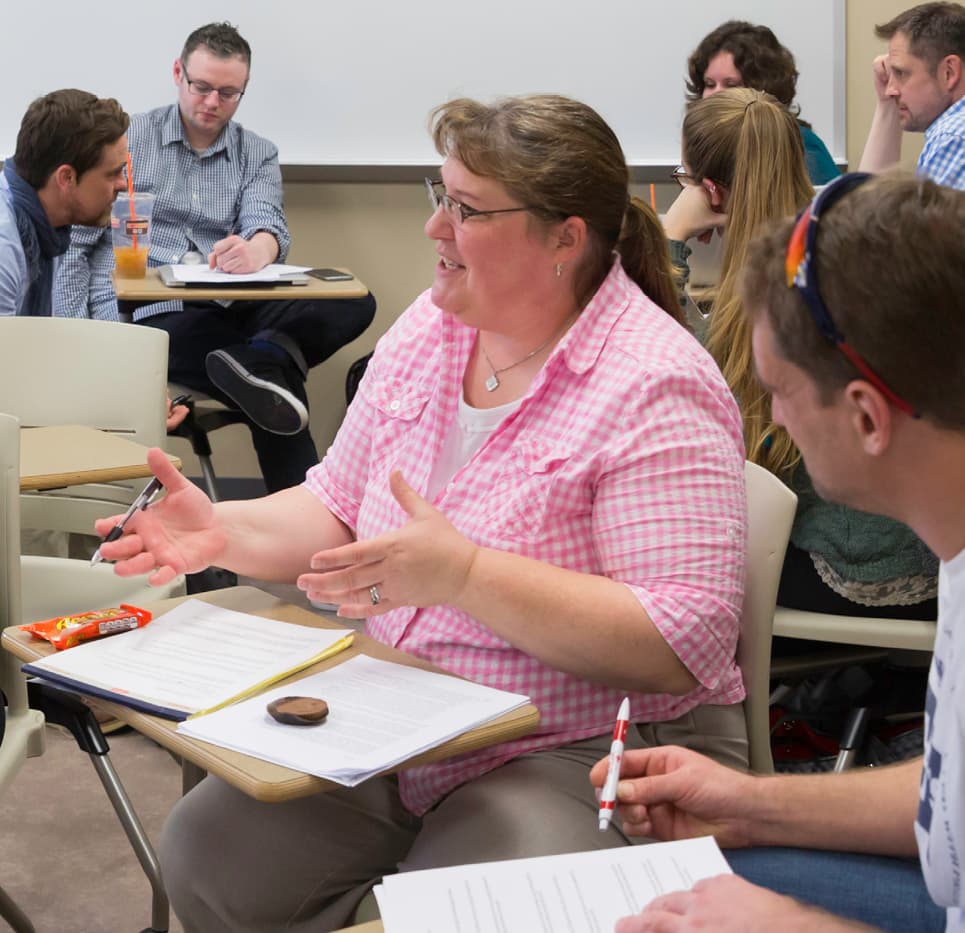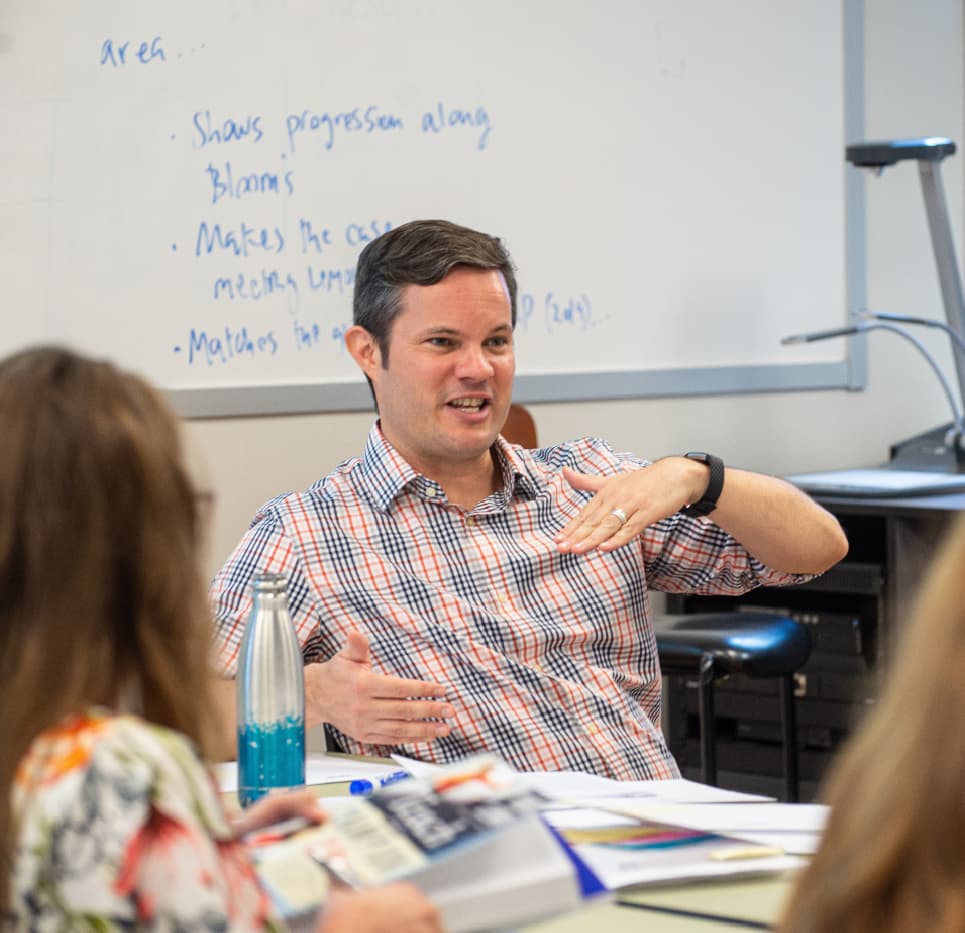From Concepts to Classrooms
The MA in Math for Teachers program is not accepting applications for admission at this time. Thank you for your patience as we update our program offerings. A new option for teachers is anticipated for Fall 2025.
The online Master of Arts in Mathematics for Teachers program is designed primarily for secondary and middle school teachers, providing an alternative to a traditional master’s in education. Non-teaching professionals seeking an advanced degree in mathematics are also encouraged to apply for admission. Tuition for the program is offered at a discounted rate, which is less than half of the University’s standard graduate rate. View our current tuition rates.
Why Choose the MA in Mathematics for Teachers?
The Master of Arts in Mathematics for Teachers is inspiring, engaging, and challenging. It will expand your knowledge of mathematics and further develop your teaching methods that will help you share your passion for math. The caliber of our faculty and focus of the program has made it a popular choice for mathematics educators for nearly two decades.
What Will You Study?
The Master of Arts in Mathematics for Teachers is a content-based program consisting of 10 graduate courses (30 credits). The content is linked to the state Mathematics Curriculum Framework when possible. You will have the option to take courses in discrete mathematics, geometry, calculus, number theory, linear algebra, analysis, abstract algebra, probability, and statistics. Special topics courses are also offered in mathematics of origami, mathematics of symmetry, and cryptology.








